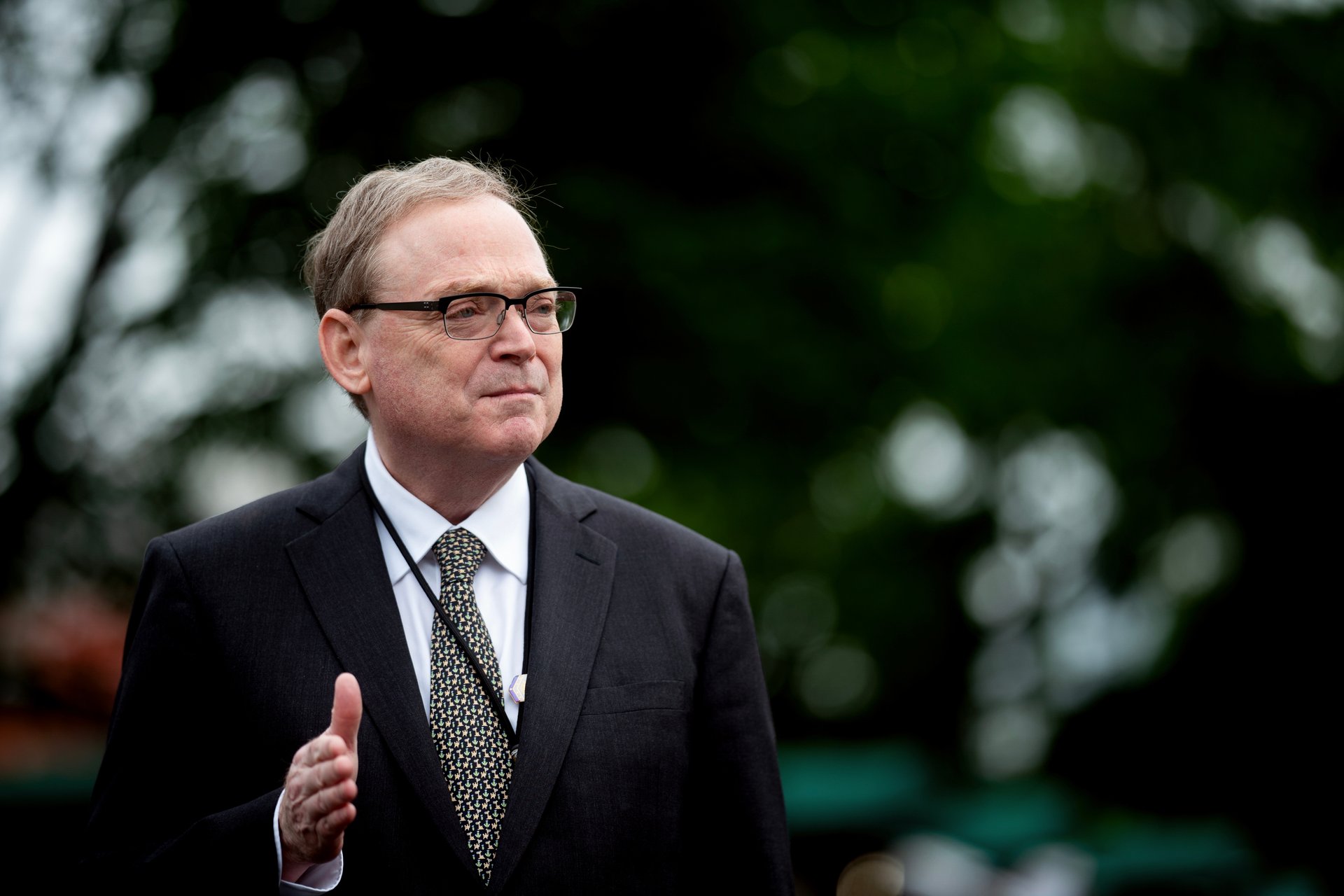Top Trump adviser floats stripping 'revenge tax' from GOP megabill if more trade deals are signed
The "revenge tax" has attracted considerable scrutiny from critics who fear it will quell the appetite of foreign investors

Kevin Hassett, director of the National Economic Council, speaks to members of the media following a television interview outside the White House in Washington, DC, US, on Tuesday, May 27, 2025 (Stefani Reynolds/Bloomberg via Getty Images)
White House National Economic Council Director Kevin Hassett suggested that the a controversial "revenge tax" provision could be struck from the GOP megabill if major trading partners strike deals in quick succession with the Trump administration.
Suggested Reading
"We got a tax response, a tax retaliation ... but maybe it doesn't have to be in the bill," Hassett told Fox Business. "We're in negotiations over tax issues."
Related Content
"Our hope is that they issue policy pronouncements today or tomorrow that make it so we don't have to include 899," he said.
The Senate measure, otherwise known as Section 899, would impose a punitive tax of up to 15% on companies and investors from nations the White House deems are taxing U.S. businesses unfairly. The measure has attracted considerable scrutiny from critics who fear it will quell the appetite of foreign investors.
Canada, the UK, France, and Australia impose digital service taxes on tech companies like Meta. Dozens of nations are also implementing a global 15% minimum tax deal negotiated during the Biden administration. Most Republicans believe both taxes discriminate against U.S. companies, so countries collecting either tax from American firms on either would be subject to the "revenge tax."
Hassett said he believes there's been "a lot of interactions" between the tax bill and ongoing trade negotiations. He also has said more trade deals are poised to be announced in the near future, particularly around July 4.
Still, some Republicans in Congress say they don't want to discourage foreign companies from expanding operations or otherwise investing in the U.S.
"I know the 899 piece of it was concerning to a lot of foreign investors, and I don't think we want to cut off foreign investment," Sen. Kevin Cramer of North Dakota said in an interview with Quartz. "I like friendly foreign investment."
